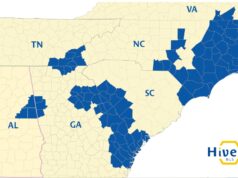WASHINGTON, D.C. – June 13, 2014 – (RealEstateRama) — Toxic stress resulting from persistent poverty, trauma and social bias can hijack brain functions and lead to behavior patterns that may impede individuals’ economic progress. How can public housing authorities (PHAs) use this information to design economic self-sufficiency programs that accommodate the needs of affected residents and reduce reliance on public assistance? A new report applies lessons from behavioral and cognitive science to give PHAs new insight into programs that can support residents’ economic progress.
Strengthening Economic Self-Sufficiency Programs: How Housing Authorities Can Use Behavioral and Cognitive Science to Improve Programs, released today by the Center for Housing Policy at the National Housing Conference, examines how housing-based economic self-sufficiency programs, such as the Family Self-Sufficiency (FSS) program, can use principles from behavioral and cognitive science to effectively serve residents affected by persistent poverty. By designing programs that acknowledge and accommodate the difficulties that participants may face, PHAs can help residents strengthen brain pathways affected by persistent poverty, set and achieve goals, and restore cognitive balance.
Housing-based economic self-sufficiency programs are an important tool for helping low-income families make economic progress and reducing reliance on public assistance programs. Studies of FSS, however, have found mixed results. The behavioral and cognitive science principles described in this report may help to explain why some programs are more effective than others.
“The lessons from this report are eye-opening,” said Center for Housing Policy director Lisa Sturtevant. “While not all low-income individuals are affected, there is a vicious cycle in which poverty weakens crucial cognitive skills, reducing people’s ability to focus on long-term goals, which in turn cuts off access to economic advancement. There is a real economic cost to continuing with the status quo.”
Residents who’ve experienced poverty-related brain challenges may need more frequent and intensive support to improve task persistence and accommodate likely setbacks. Strict, compliance-focused approaches may reinforce the brain’s stress response and make it harder for affected residents to think ahead and focus on long-term outcomes.
Brain training and supportive activities can reinforce the notion that persistence generates reward, leading to stronger long-term decision-making skills and cognitive balance. The report finds that individuals experiencing poverty are more likely to benefit from economic self-sufficiency programs if they incorporate five principles: participants lead their processes, frequent feedback confirms progress, participants can re-start if needed, intensive support rebuilds skills and heightened stress can thwart success.
“There is a growing understanding that poverty harms the brain, and now we can use that knowledge to help low-income renters open the door to a brighter future,” said senior research associate and report author Maya Brennan. “Housing authorities can help to right the wrongs of poverty, trauma, and social bias by designing self-sufficiency programs that accommodate residents’ present-day weaknesses and help them overcome these challenges. This is a case where housing authorities can use science to create more effective programs and help their most disadvantaged residents achieve their dreams.”
The full report is available at http://www.nhc.org/EconomicSelfSufficiency_final_web.pdf
###
About the National Housing Conference and Center for Housing Policy
The National Housing Conference (NHC) represents a diverse membership of housing stakeholders including tenant advocates, mortgage bankers, nonprofit and for-profit home builders, property managers, policy practitioners, realtors, equity investors, and more, all of whom share a commitment to a balanced national housing policy. As the research division of NHC, the Center for Housing Policy specializes in solutions through research, working to broaden understanding of America’s affordable housing challenges and examine the impact of policies and programs developed to address these needs. Since 1931, NHC has been dedicated to ensuring safe, decent and affordable housing for all in America. We are a nonpartisan, 501(c)3 nonprofit that brings together our broad-based membership to advocate on housing issues.
Contact:
Radiah Shabazz
202.466.2121 (ext. 240)

















